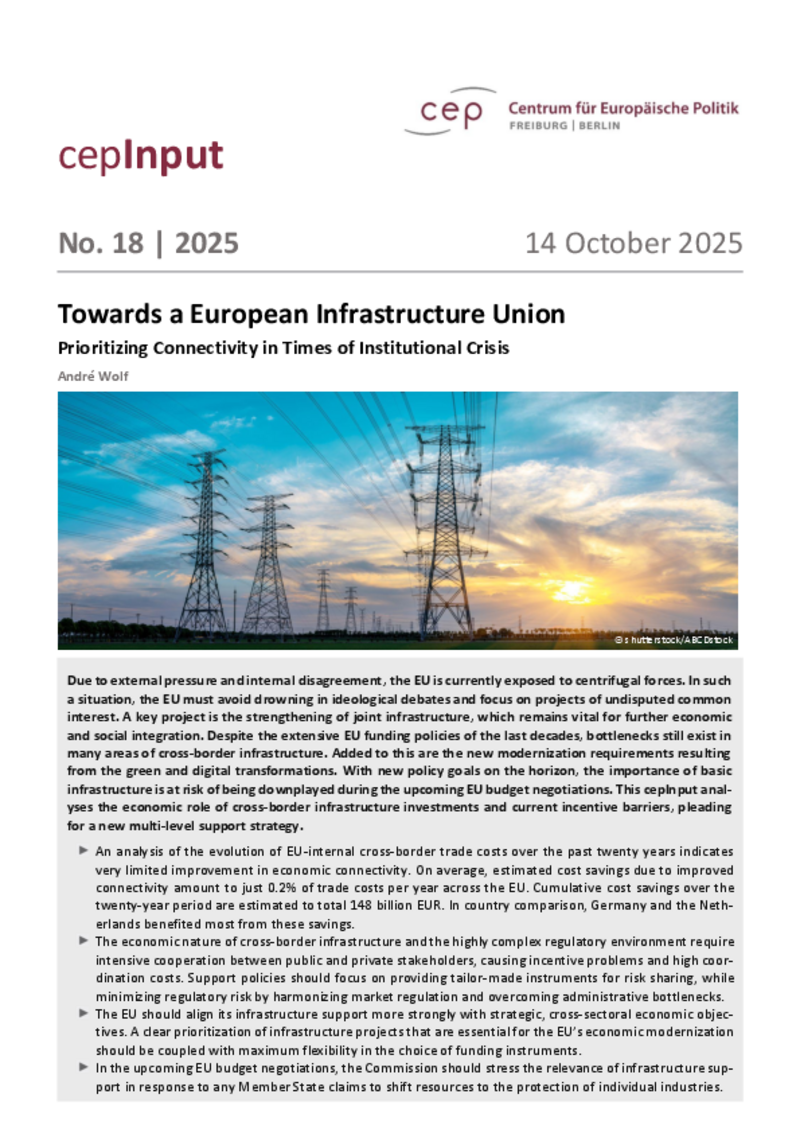
Energy
Towards a European Infrastructure Union
cepInput
In order to remain competitive in a fragmented and fragile global economy, the EU must leverage its most important asset: its internal market. Removing the remaining barriers to intra-European trade can stimulate economic growth in many ways. In addition to common market regulation, sufficient infrastructure capacity is particularly important for cross-border exchange within the EU. This applies to a wide range of asset classes such as railway lines, electricity grids, gas pipelines and shared research infrastructures.
Europe's economic integration continues to be hampered by significant cost barriers. According to cep estimates, the costs of cross-border trade in the EU have fallen by only 0.2% per annum over the last two decades. "One of the reasons for this is the slow expansion of cross-border infrastructure," says cep economist André Wolf, who conducted the study. He advocates intensive cooperation between public and private actors. Uncertainty regarding approval processes and the long-term regulatory environment raises financing costs and encourages a wait-and-see attitude in the private sector. Support measures should focus on providing tailor-made risk-sharing instruments. At the same time, regulatory risk should be reduced through stable market rules and efficiency requirements for approval procedures.
The EU is already supporting infrastructure development through measures such as the Connecting Europe Facility. However, in the negotiations on the new multiannual EU financial framework, necessary investments in cross-border infrastructure are at risk of being sacrificed to other strategic goals. "This makes it all the more important to emphasise the central importance of shared infrastructure in the EU's overarching strategy debate," said Wolf.
Download PDF
| Towards a European Infrastructure Union (publ. 10.14.2025) | 1,018 KB | Download | |
 | |||



